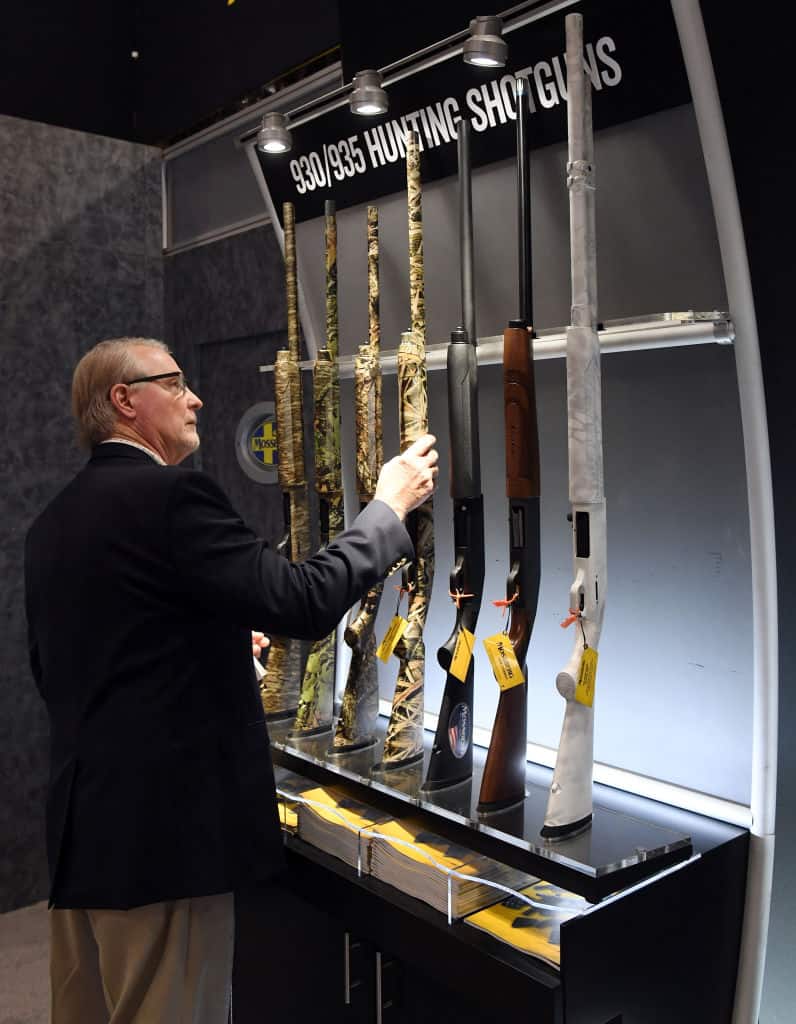
24/7 Wall St. Insights
- Firearm policy has become one of the most polarizing issues in American politics in recent years.
- The partisan debate over the appropriate balance between gun rights and gun control has resulted in years of stalled gun control initiatives in Washington, D.C., and a patchwork of firearm regulations across the 50 states.
- While Ohio has done more to regulate firearms than much of the rest of the country, the state’s gun control policies are not especially strong.
- Also: Discover the next Nvidia
For over 200 years, Americans have had a constitutional right to own firearms. While federal law restricts access to firearms for certain groups — including felons, illegal drug users, and fugitives — and effectively prohibits civilian ownership of specific types of firearms — such as fully automatic weapons and short-barreled shotguns — the U.S. has some of the most permissive gun laws in the world.
The growing regularity of mass shootings in recent decades, in addition to rising rates of gun violence, have caused many to call for tighter firearm restrictions. This, in turn, has made gun control one of the most polarizing issues in American politics. A 2023 Gallup survey found that 84% of likely Democratic voters say that gun laws should be stricter, compared to only 31% of likely Republican voters.
The partisan gulf over gun control has yielded little beyond political gridlock at the federal level. In the absence of legislative action on Capitol Hill, many states have exercised their authority to expand upon national gun control policies. Others, meanwhile, have adopted a decidedly hands-off approach.
According to the analysis of Giffords Law Center, a gun violence prevention group, Ohio’s gun control laws are relatively weak. Accounting for a wide-range of policies at the disposal of state governments — including assault-style weapon and high-capacity magazine bans, universal background check laws, waiting periods, and regulating firearms in public — Gifford’s Law Center assigned Ohio a letter grade of “D-“, on an A-F scale, for the strength of its gun control policies. (Here is a look at every state’s gun law grade.)
Firearm regulations are generally designed and implemented to reduce the likelihood of gun violence, and in states where gun control takes a backseat to gun rights, firearm fatality rates tend to be higher. According to the data from the Centers for Disease Control and Prevention, there were 1,831 firearm related deaths in Ohio in 2022, or about 15.6 for every 100,000 people, the 25th highest gun-death rate of the 50 states. (Here is a look at the U.S. cities where gun crime is surging.)
Using data compiled by Gifford’s Law Center, 24/7 Wall St. reviewed Ohio’s approach to 14 key gun control policy areas. It is important to note that the laws on this list are not exhaustive, and only represent broad guidelines. Legal nuances can also vary at the local level.
Why It Matters

With the exception of some modest revisions to background check protocols, the U.S. has not implemented any meaningful gun control reform in decades. Still, state governments also have the authority to enact their own policies, resulting in a patchwork of gun laws across the 50 states. Currently, Ohio ranks as having some of the weakest state-level firearm regulations in the country.
Universal background check laws
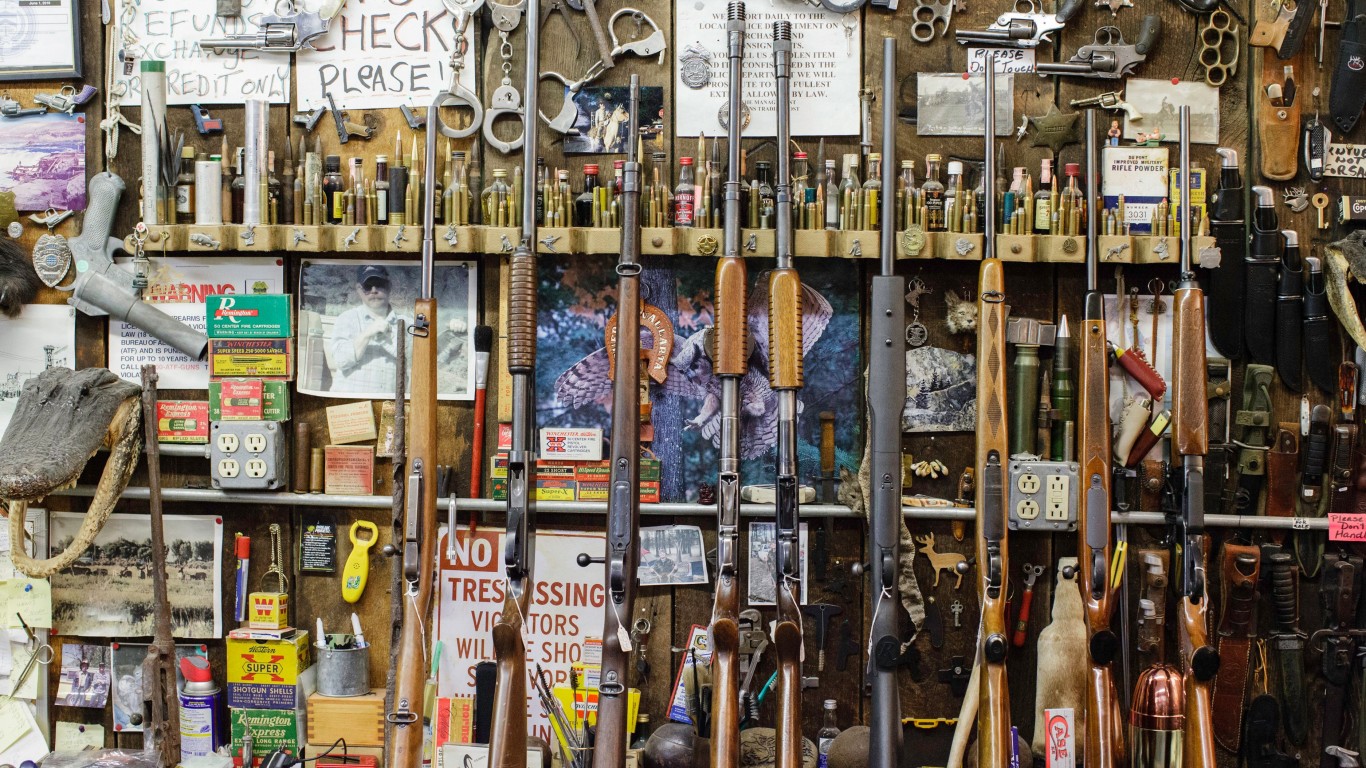
- State policy: Under federal law, all gun buyers must undergo a background check before obtaining a firearm from a licensed retailer — but transfers made from unlicensed retailers are exempt from background check requirements. While many states have closed this loophole with universal background check laws, Ohio has not.
Mental health reporting

- State policy: Ohio requires collection of mental health records for in-state databases, but laws do not address sharing records with federal databases.
Concealed carry of a firearm
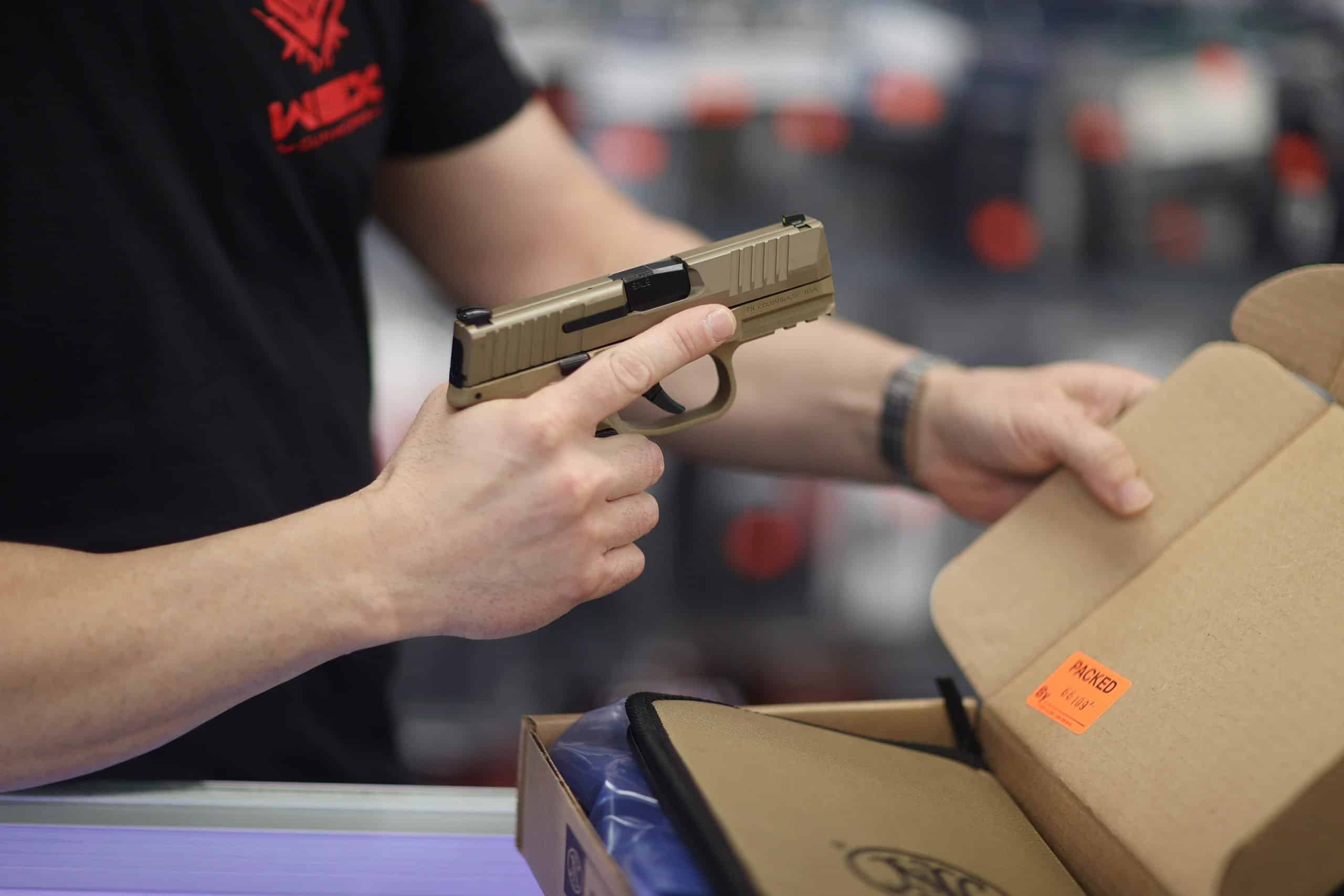
- State policy: No permit is required to carry a concealed firearm in certain public places in Ohio.
Handgun open carry regulations
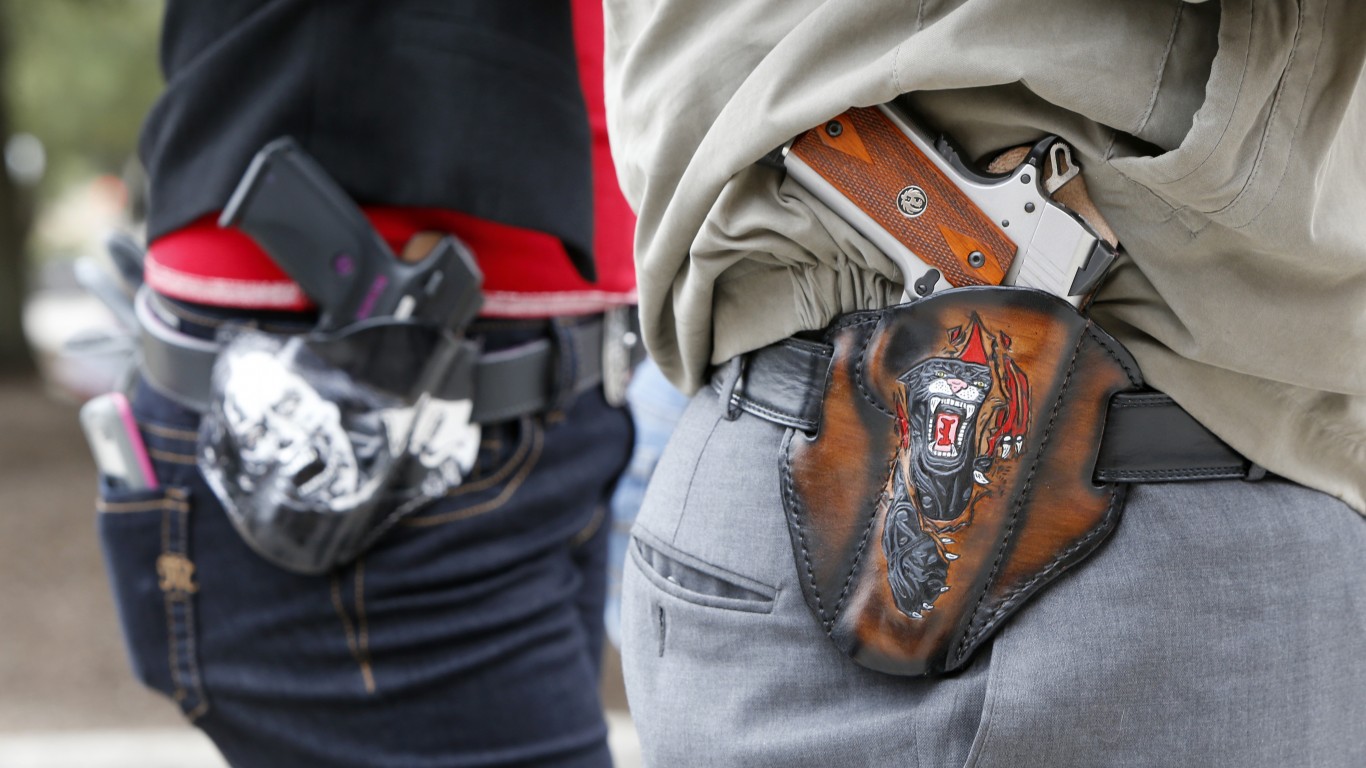
- State policy: Open carry of handguns is permitted in certain public places in Ohio.
Long gun open carry regulations
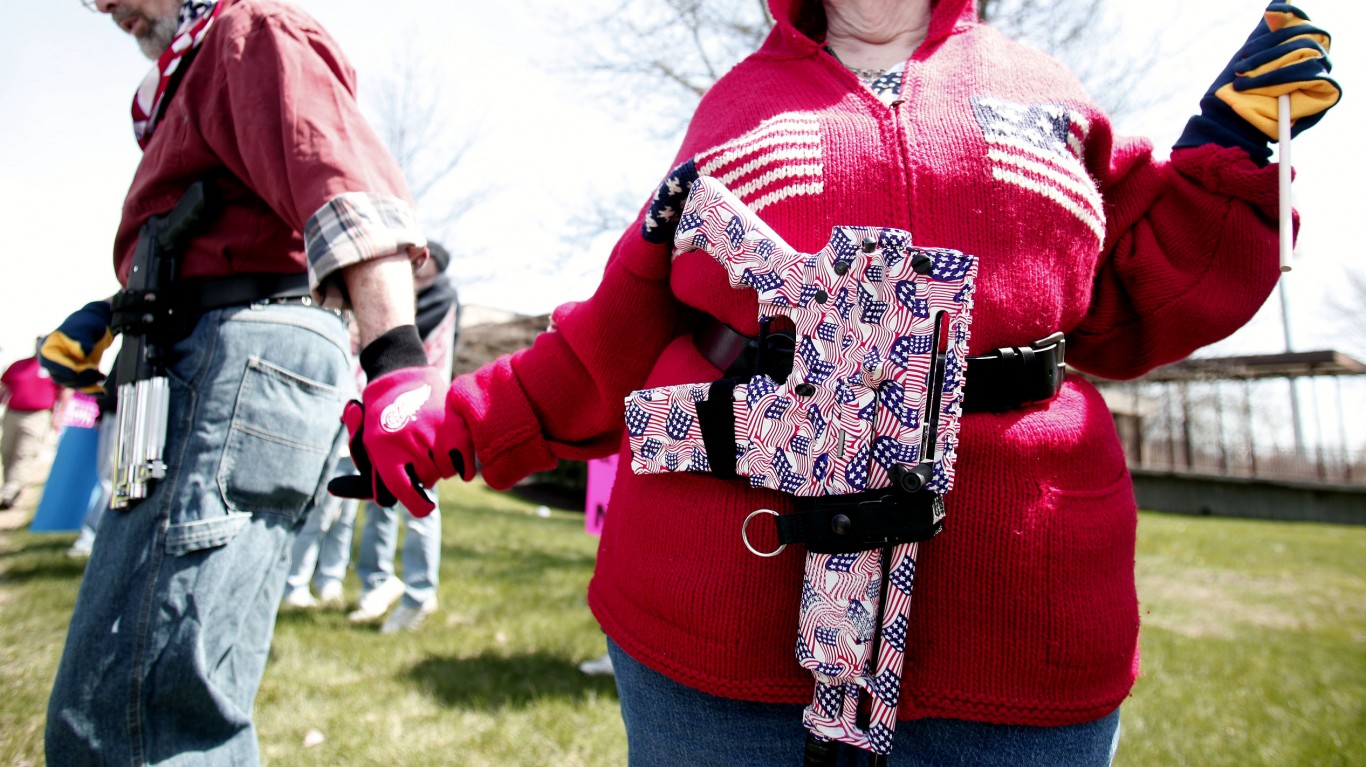
- State policy: In Ohio, open carry of long guns is not prohibited in certain public places.
Stand your ground laws

- State policy: Use of deadly force is permitted in public, if necessary, to prevent death or serious bodily harm — even if it is possible to step away from the incident.
Guns in schools

- State policy: In Ohio, firearms can be carried in K-12 schools by school security officers. Teachers and other school employees who have been granted permission and have completed required training and background checks can also carry firearms.
Mandatory waiting periods for firearm purchases
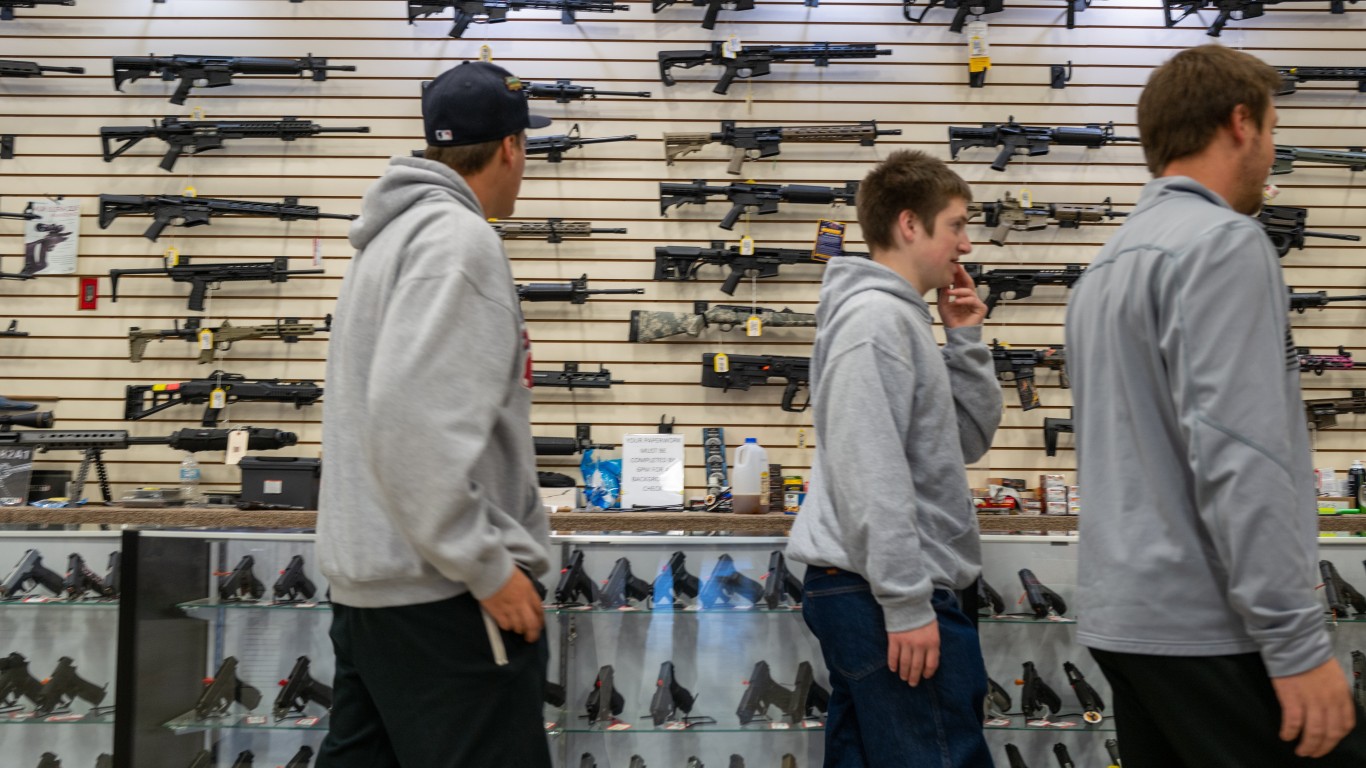
- State policy: There is no mandatory waiting period for firearm purchases in Ohio.
Assault-style weapons
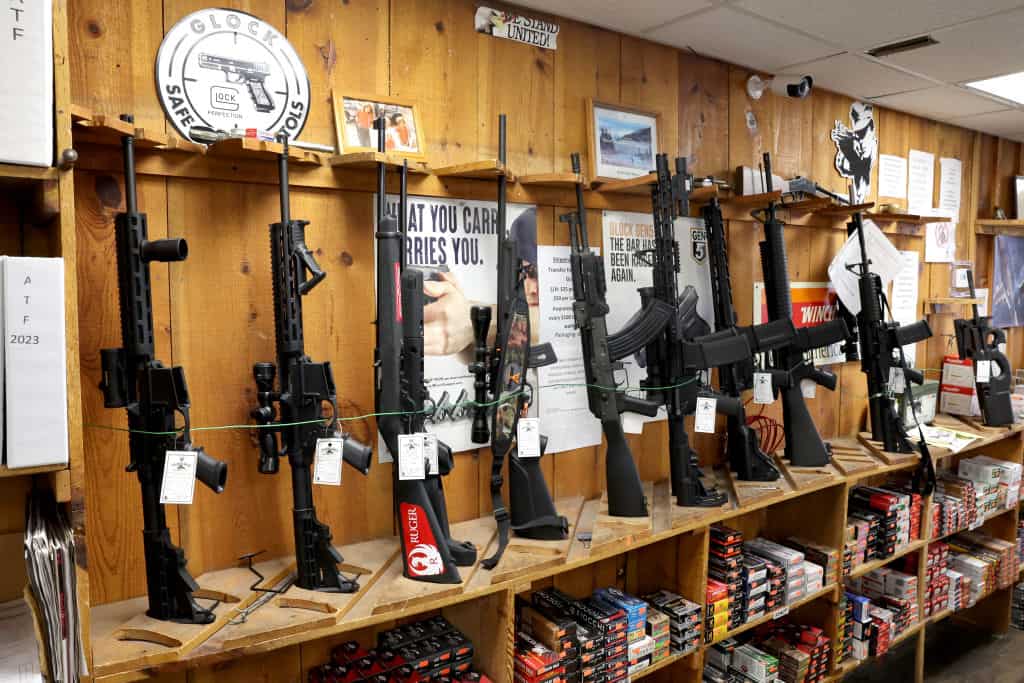
- State policy: Generally, Ohio does not regulate the possession or sale of assault-style weapons, like those modeled after AK-47 or M-16 military rifles.
High-capacity magazines
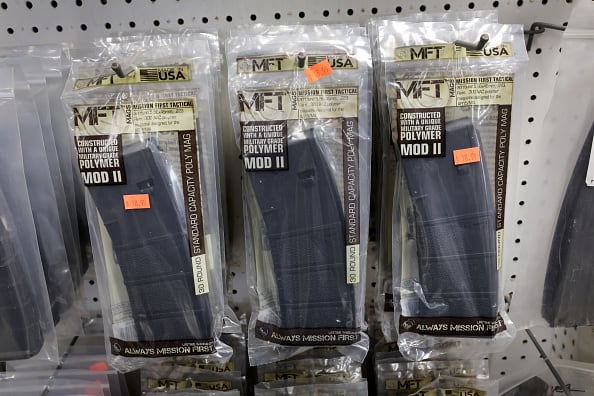
- State policy: Ohio does not restrict high-capacity magazines.
Licensing requirements

- State policy: Gun owners or prospective buyers do not need to obtain a permit in Ohio.
State-level prohibitions on who can own firearms

- State policy: In Ohio, individuals struggling with alcohol abuse and adults who were adjudicated for certain juvenile offenses are subject to firearm access restrictions.
Minimum age requirements for handguns
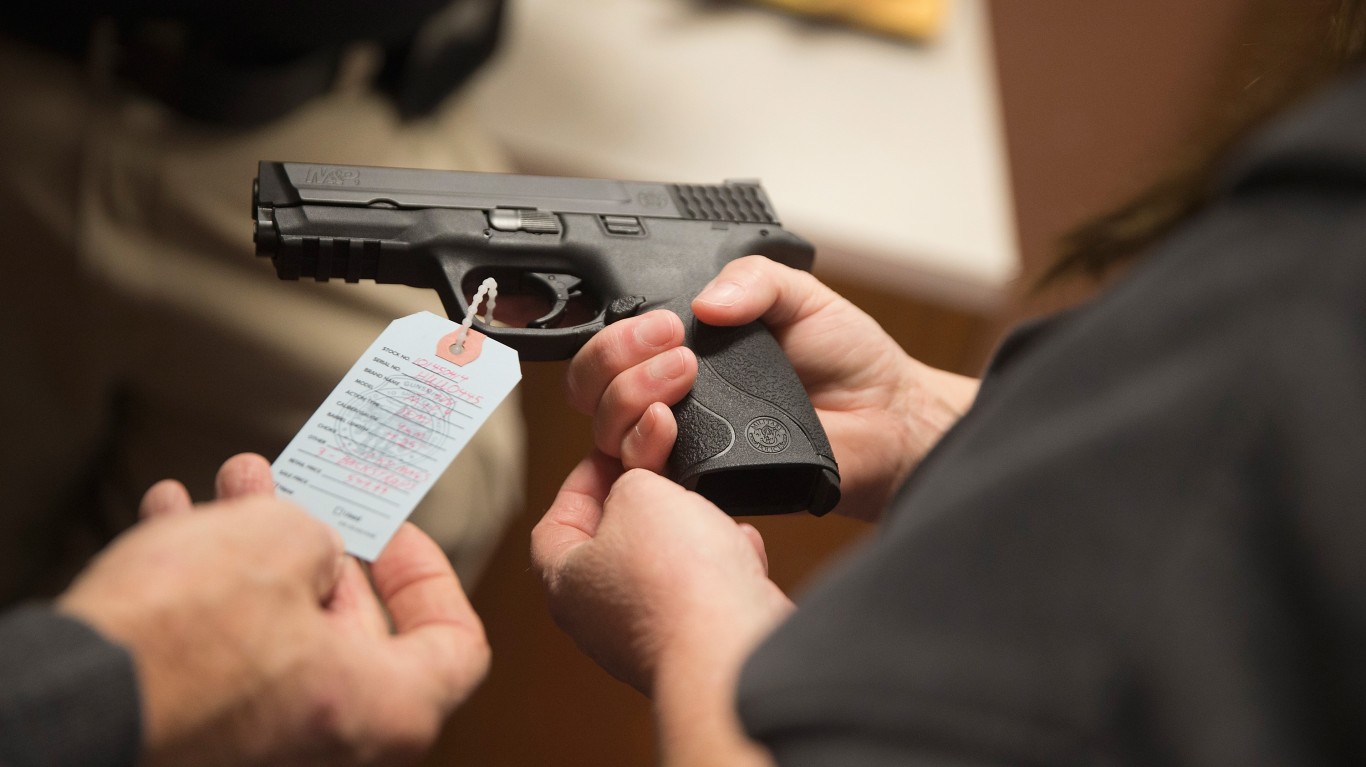
- State policy: In Ohio, individuals must be at least 21 years old to purchase a handgun. The state does not set a minimum age requirement for possession of a handgun.
Minimum age requirements for long guns
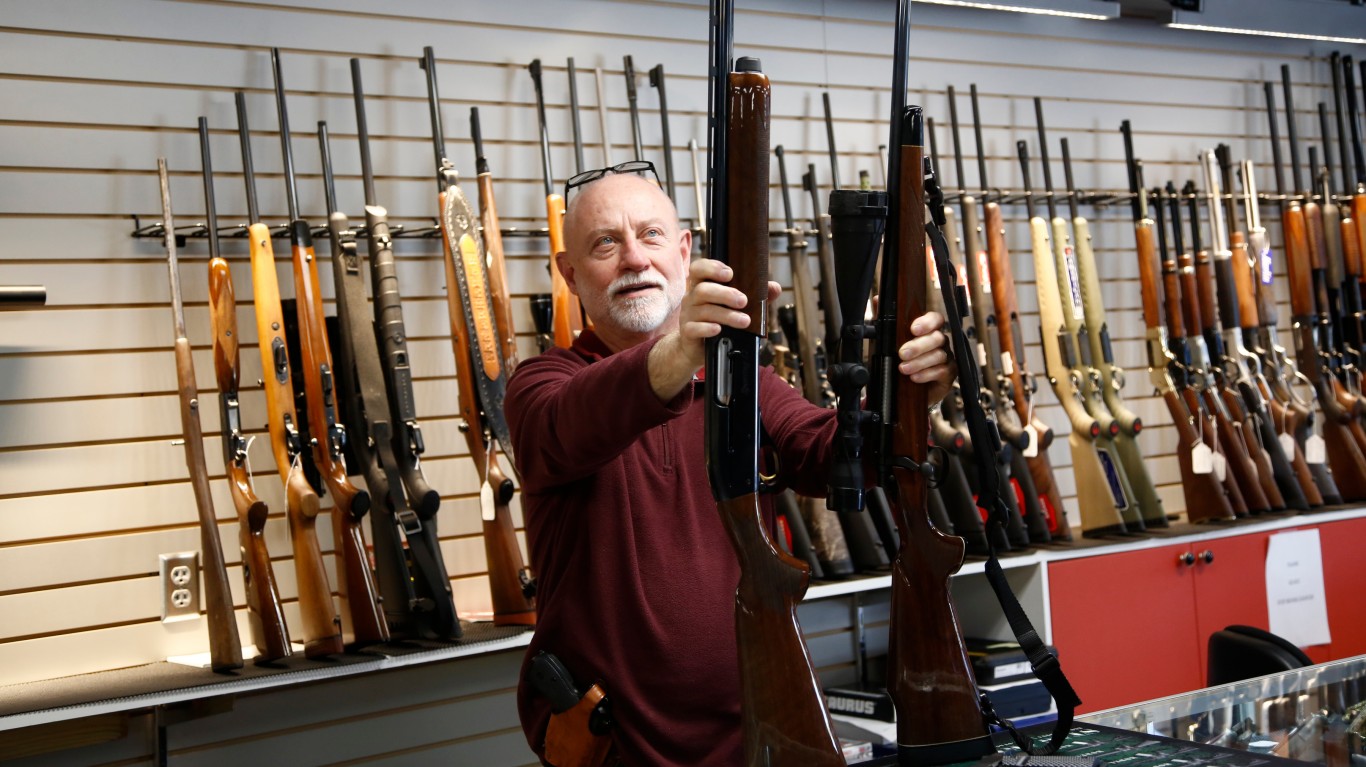
- State policy: In Ohio, individuals must be at least 18 years old to purchase a long gun, like a rifle or shotgun. The state does not set a minimum age requirement for possession of a long gun.
The Average American Has No Idea How Much Money You Can Make Today (Sponsor)
The last few years made people forget how much banks and CD’s can pay. Meanwhile, interest rates have spiked and many can afford to pay you much more, but most are keeping yields low and hoping you won’t notice.
But there is good news. To win qualified customers, some accounts are paying almost 10x the national average! That’s an incredible way to keep your money safe and earn more at the same time. Our top pick for high yield savings accounts includes other benefits as well. You can earn up to 3.80% with a Checking & Savings Account today Sign up and get up to $300 with direct deposit. No account fees. FDIC Insured.
Click here to see how much more you could be earning on your savings today. It takes just a few minutes to open an account to make your money work for you.
Our top pick for high yield savings accounts includes other benefits as well. You can earn up to 4.00% with a Checking & Savings Account from Sofi. Sign up and get up to $300 with direct deposit. No account fees. FDIC Insured.
Thank you for reading! Have some feedback for us?
Contact the 24/7 Wall St. editorial team.
